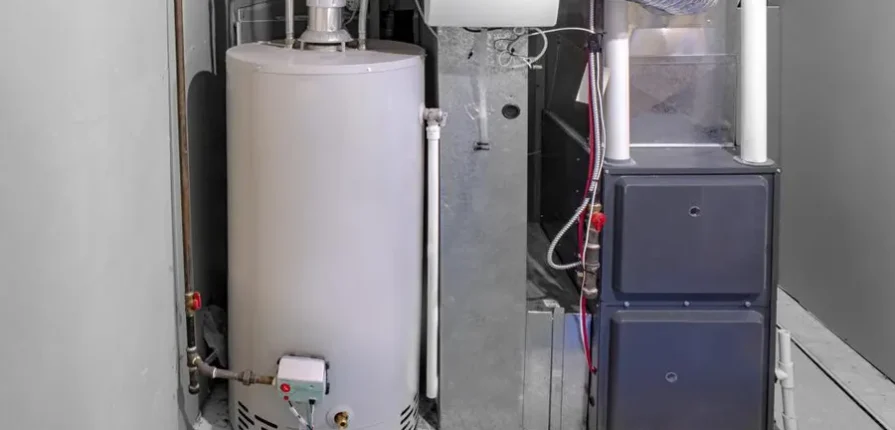As the cold season approaches, ensuring your heating system is in top shape becomes a priority. A well-functioning heater is crucial for maintaining a comfortable and warm environment in your home. However, like any other appliance, heaters can experience issues over time. Understanding common heater problems and knowing when to repair or replace them can save you time, money, and discomfort.
Common Heater Problems and Solutions
1. Heater Not Producing Heat
One of the most frustrating issues is when your heater stops producing heat altogether. This problem could be due to several reasons:
- Thermostat Issues: Sometimes, the thermostat is not set correctly or could be malfunctioning. Ensure the thermostat is set to “heat” mode and at the correct temperature. If the problem persists, it may need recalibration or replacement.
- Pilot Light or Ignition Control Problems: For gas heaters, a faulty pilot light or ignition control could be the culprit. If the pilot light is out, relighting it may solve the issue. However, if it goes out frequently, this might indicate a more serious problem with the thermocouple or gas valve, which should be inspected by a professional.
- Electrical Issues: If your electric heater isn’t working, check the circuit breaker. A tripped breaker or a blown fuse might be the cause. If the circuit continues to trip, you may need to call an electrician to inspect your system.
2. Inadequate Heating
If your heater is running but not providing sufficient warmth, the problem could be:
- Clogged Air Filters: Dirty air filters restrict airflow, making it harder for the heater to warm your home. Replacing the filter regularly (every 1-3 months) can improve efficiency.
- Blocked Vents or Ducts: Ensure that all vents are open and unblocked. Blocked vents can prevent heated air from circulating properly, leading to uneven heating.
- Thermostat Calibration: An incorrectly calibrated thermostat might not signal the heater to turn on at the correct time. Calibrating or replacing the thermostat can resolve this issue.
3. Strange Noises
Heaters can make various noises, some of which indicate serious issues:
- Banging or Popping Sounds: This could be caused by air bubbles trapped in the system or expansion and contraction of metal parts. Bleeding the radiators or adjusting the pressure in the system may help.
- Squealing or Screeching: A belt that is worn out or needs lubrication can cause this noise. Regular maintenance, including lubrication and belt replacement, can prevent this problem.
- Rattling: Loose components, such as screws or panels, can cause a rattling sound. Tightening these components can eliminate the noise.
4. Frequent Cycling
If your heater turns on and off frequently, known as short cycling, it may be due to:
- Overheating: The heater might be overheating and shutting off as a safety precaution. This could be caused by a dirty filter, blocked vents, or a malfunctioning fan motor.
- Thermostat Problems: A malfunctioning thermostat might be signaling the heater to turn on and off too frequently. Replacing the thermostat could solve the issue.
- Improper Sizing: If your heater is too large or too small for your space, it may cycle on and off too frequently. In this case, consulting with an HVAC professional to assess your system’s size might be necessary.
When to Call a Professional
While some heater repairs are simple and can be done by homeowners, others require the expertise of a professional. You should consider calling a professional if:
- You Smell Gas: If you detect a gas smell, turn off the heater immediately, open windows for ventilation, and call your gas company or a professional HVAC technician. Gas leaks can be extremely dangerous and should be addressed immediately.
- Electrical Issues Persist: If resetting the circuit breaker or replacing a fuse doesn’t resolve the issue, an electrician or HVAC technician should inspect your system.
- Complex Mechanical Problems: Issues with the blower motor, heat exchanger, or ignition control are best handled by professionals who have the tools and knowledge to perform repairs safely.
- Annual Maintenance: To prevent issues and extend the life of your heating system, schedule an annual maintenance check-up with a professional. This can help identify and fix potential problems before they become serious.
Preventative Maintenance Tips
Preventative maintenance is key to avoiding costly repairs and ensuring your heater operates efficiently throughout the winter. Here are some tips:
- Regularly Replace Filters: Change your heater’s air filter every 1-3 months, especially during peak usage periods, to maintain proper airflow and efficiency.
- Inspect and Clean Vents: Make sure vents and ducts are clean and free from obstructions. Dust and debris can accumulate and restrict airflow, making your heater work harder.
- Check the Thermostat: Test your thermostat at the start of the heating season to ensure it’s functioning properly. Consider upgrading to a programmable thermostat for better control over your home’s temperature.
- Schedule Professional Maintenance: An annual inspection by a licensed HVAC technician can catch potential issues early and keep your system running smoothly.
Conclusion
Heater repair is an essential aspect of home maintenance, especially as the cold months approach. By understanding common heater problems, knowing when to DIY or call a professional, and conducting regular preventative maintenance, you can ensure your heating system remains reliable and efficient. Keeping your heater in good working order not only provides comfort but also helps you save on energy costs and prolongs the lifespan of your system.



Recent Comments